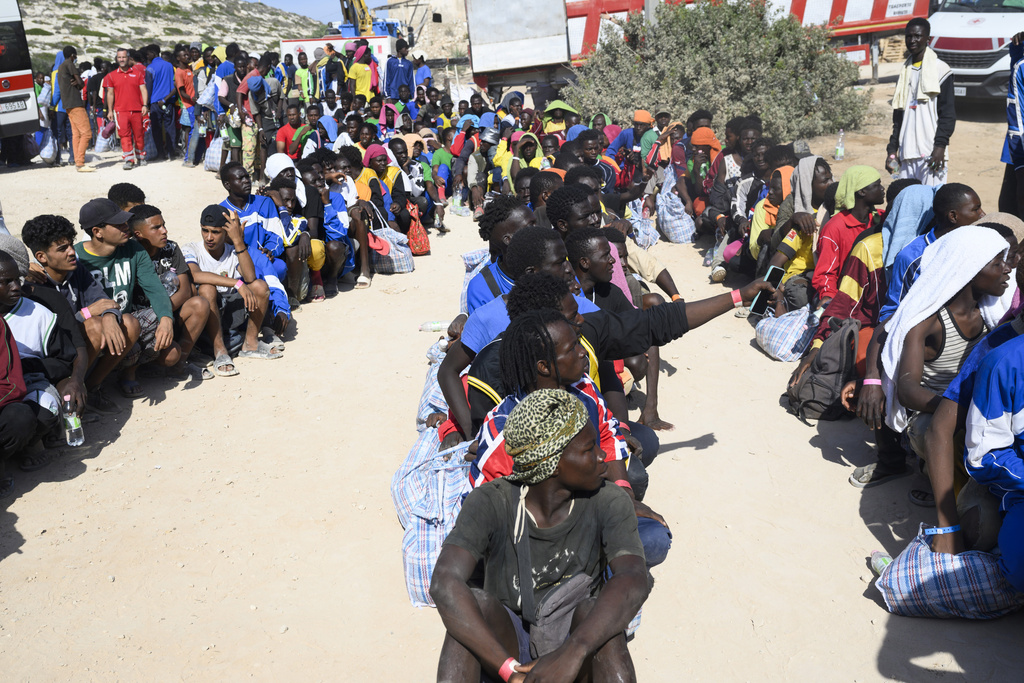Conservatives in Poland warn that Brussels is preparing the so-called compensatory mechanism for the migration package, which assumes that countries that have so far resisted mandatory quotas of newcomers from outside the EU will have to accept more of them in the coming months.
Speaking at a press conference on Wednesday, Prime Minister Donald Tusk claimed that Poland would not accept any relocated migrants from the obligatory solidarity mechanism. However, Poland’s conservative Law and Justice (PiS) argues that the very fact Poland has agreed to the pact becoming operational implies that Poland has handed over its migration policy to Brussels and would soon be faced with the choice of housing migrants or being fined for refusing them.
The head of the PiS parliamentary caucus, Mariusz Błaszczak, has said that Donald Tusk is therefore misleading the public over his supposed opposition to the EU’s migration pact.
Conservative daily Gazeta Polska reports that informal negotiations have already begun in Brussels regarding the so-called compensation mechanism for the migration package. It assumes that countries that have so far resisted mandatory quotas of newcomers from outside the EU will have to accept more of them in the coming months than countries like Germany, France, or Italy, where the migration problem is very large.
This means that by the end of 2024, Poland may be forced to accept not just a few but potentially hundreds of thousands of people from Africa, the Middle East, and Asia. The original plans also indicated that the first relocation would take place in the spring, but according to Gazeta Polska, this deadline may be moved up, with an order to accept individuals designated by EU officials potentially expected as early as February.
PiS MEP Dominik Tarczyński suspects that Donald Tusk’s government will want to carry out this process quietly. “I will remind you that during the previous Civic Platform (PO) governments, centers were being prepared in secret to house migrants. There was no referendum, no discussion with local governments and their communities. Therefore, I suspect that now, similarly, the current authority will want to camouflage its decisions on this matter,” he said.
Mariusz Błaszczak, who was defense minister in the last PiS government, also pointed out that as a result of the migration pact, the pressure on the Polish-Belarusian border is likely to increase since it will encourage the Belarusian dictator Aleksandr Lukashenko to open up new routes for illegal migrants to travel through his country to the EU borders.
The PiS politician also expects there to be an increase in the “determination and aggression of the migrants themselves if they are made aware of the fact that crossing the border will guarantee them the right to stay on the territory of the EU.”
The Spanish presidency of the EU announced at the end of last year that the member states, together with the European Parliament and the European Commission, had agreed on new asylum and migration regulations covering the extraction of biometric data, the process of asylum applications, principles for determining which member state is responsible for processing any given claim, and a solidarity mechanism for coping with the migration crisis.
The changes give member states the choice of receiving migrants or paying into the EU budget for other states to accept them. The system does not oblige all asylum cases to be accepted if they are from countries that are not experiencing any humanitarian disaster or war or if the individuals applying are deemed to be a security risk.






